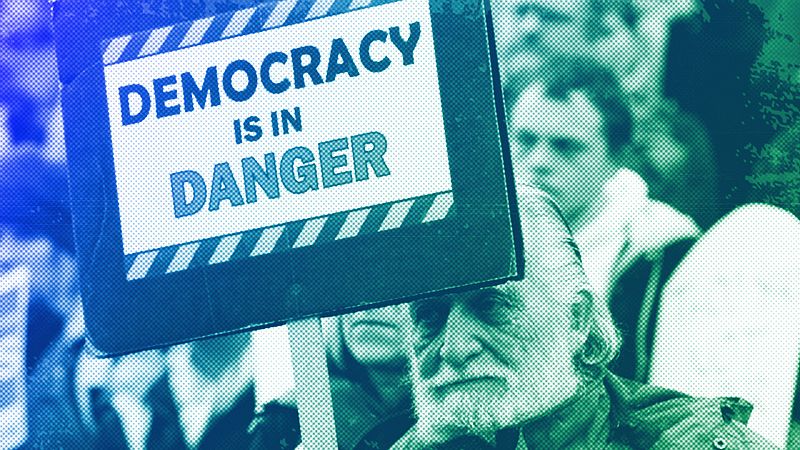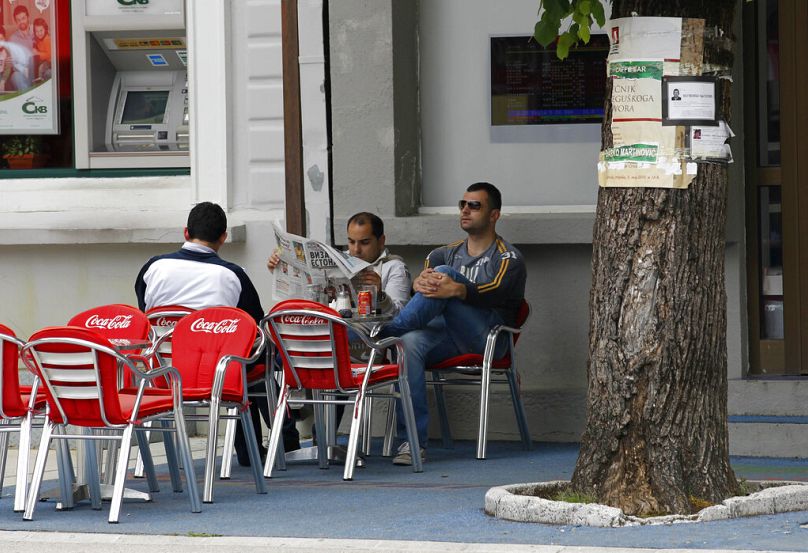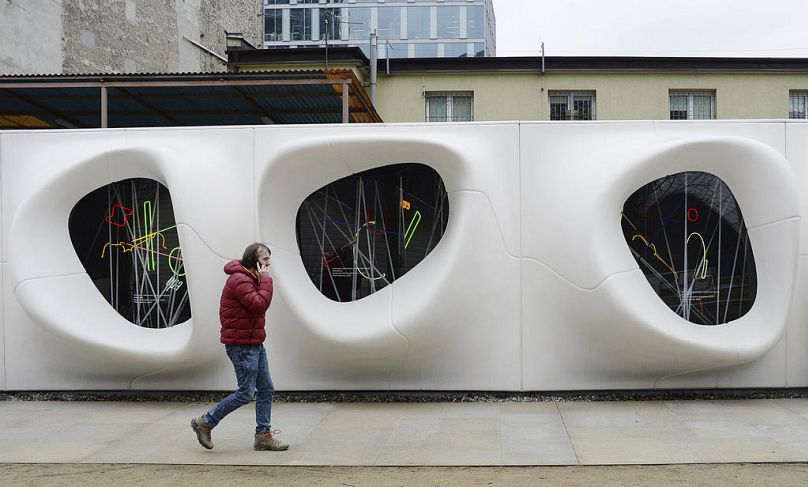Eastern Europe needs new defences against attacks on its democracies

Central and Eastern Europe is under siege. From Moldova’s October referendum, plagued by allegations of Russian meddling, to Georgia’s battles with disinformation around the parliamentary elections that will determine its course towards Europe or Russia, the region’s democratic foundations are cracking under relentless pressure.
But amid this turmoil, a quiet revolution is taking shape. In town halls, community centres, and government offices, citizens and leaders are coming together to do what traditional politics often fails to do: listen, deliberate, and find solutions.
These gatherings, known as citizens’ assemblies, could be a critical tool for safeguarding democracy in the region.
For years, Eastern Europe has been a battleground for democratic values. Internal challenges — rising populism and eroded civic trust — are exacerbated by external threats, particularly Russian interference.
Moscow’s tactics are clear: divide, disrupt, and destabilise. It floods social media with misinformation, exploits societal fractures, and backs anti-democratic movements, all to undermine the region’s democracies. The goal? Bring the region back into its sphere of influence.
Yet, Russia is not the only destabilising force; many countries face internal power capture, where populist leaders erode checks and balances to consolidate control.
Here's where citizens' assemblies come in
The citizens and governments of Eastern Europe are not passive victims in this struggle.
They have already learned classic responses, such as debunking false narratives and combating election fraud. Now they are increasingly turning to democratic innovation, one that prioritises engagement over divisive rhetoric.
Citizens’ assemblies, which bring together randomly selected, representative groups of citizens to deliberate on pressing issues worldwide, are proving to be an antidote to polarisation and a bridge over widening social divides. They offer a collaborative platform that empowers citizens to have a meaningful say in decisions that affect their lives.
These assemblies are not mere talking shops. They are structured, evidence-based spaces where participants are provided with a breadth of information on complex issues, from climate change to corruption, and supported to deliberate and reach consensus.
A new study of 40 examples across CEE countries, including Poland, Montenegro and Estonia, shows how these assemblies can cut through the noise and offer real solutions.
Many are initiated or supported by governments, showing that political leaders recognise the value of these inclusive, citizen-driven spaces.
Diffusing polarisation, combatting disinformation
Take Poland, where local assemblies have brought citizens together to tackle everything from air pollution to social inequalities. In Montenegro, a recent assembly addressed the corruption still present in public institutions.
Assembly members from different backgrounds, age groups, and political affiliations were able to reach common ground on a range of concrete recommendations.
These local-level successes highlight the potential of citizens’ assemblies to navigate complex, controversial issues — a stark contrast to the gridlock often seen in councils and parliaments.
Citizens’ assemblies are gaining traction because they offer a powerful response to both external and internal threats. They have the potential to counter authoritarian tactics by fostering informed, inclusive dialogue that builds social cohesion and resilience.
By bringing together diverse citizens to deliberate on contentious issues, assemblies help diffuse polarisation, creating a space where common ground can be found even on divisive topics.
They also help combat disinformation by ensuring people are equipped with accurate, balanced information, which then feeds back into the wider public discourse. Moreover, assemblies model a more cooperative, transparent political culture, showing that decision-making can be collaborative rather than adversarial.
Informed, inclusive and cooperative
The battle for democracy in Eastern Europe is not just about elections or party politics. It is about restoring trust in public life and showing that citizens, when given the chance, can be thoughtful, engaged, and solutions-oriented.
For decades, authoritarian actors have thrived on division and distrust. Citizens’ assemblies offer a way to push back — by fostering informed, inclusive, and cooperative engagement that weakens the appeal of populist rhetoric.
The question now is whether more governments and international institutions will support these efforts. European organisations have already stepped in to provide funding for some assemblies, but more needs to be done.
To make citizens’ assemblies a sustainable feature of Eastern Europe’s democratic landscape, they must be integrated into the formal political system. This means legal frameworks that ensure their recommendations are taken seriously and consistent funding.
Democracy in Eastern Europe is still in a precarious position. But from Warsaw to Tbilisi, ordinary citizens and forward-thinking leaders show that resilience is possible.
If governments can muster the courage to support this democratic innovation, they may find that the best way to defend democracy is by empowering the people.
Ieva Cesnulaityte is the founding Head of Research and Learning of DemocracyNext, an international nonprofit organisation that aims to shift political power to citizens through citizens’ assemblies. She is a 2023/2024 Europe’s Futures Fellow at the Institute for Human Sciences in Vienna.
Today



